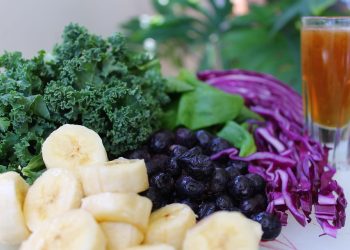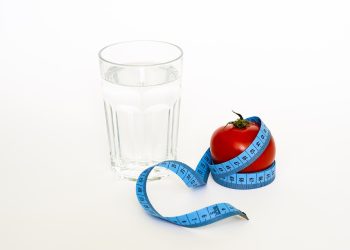Understanding Belly Fat: More Than Just Aesthetics
Belly fat, also known as visceral fat, is more than just a cosmetic concern. It’s the fat stored deep within the abdominal cavity, surrounding vital organs like the liver, pancreas, and intestines. Unlike subcutaneous fat (the jiggly fat you can pinch), visceral fat is metabolically active and releases hormones and inflammatory substances that contribute to a range of health problems.
These health problems include an increased risk of:
- Type 2 diabetes
- Heart disease
- Certain cancers (e.g., breast cancer, colon cancer)
- Metabolic syndrome
- Non-alcoholic fatty liver disease (NAFLD)
Therefore, reducing belly fat is crucial for improving overall health and well-being. This article provides evidence-based tips to help you start your journey towards a healthier, leaner you, beginning today.
Dietary Strategies for Targeted Belly Fat Reduction
1. Prioritize Protein Intake
Protein is your ally in the fight against belly fat. It’s the most satiating macronutrient, meaning it helps you feel fuller for longer, reducing overall calorie intake. Protein also boosts your metabolism and helps preserve muscle mass during weight loss. Lean muscle mass burns more calories at rest than fat tissue.
How much protein? Aim for at least 0.8 grams of protein per kilogram of body weight per day. Active individuals or those looking to build muscle may require even more.
Good sources of protein:
- Lean meats (chicken breast, turkey, fish)
- Eggs
- Greek yogurt
- Legumes (beans, lentils)
- Tofu and tempeh
- Nuts and seeds
Example: Start your day with a protein-packed breakfast like Greek yogurt with berries and nuts, or an egg white omelet with vegetables.
2. Embrace Fiber-Rich Foods
Fiber, particularly soluble fiber, absorbs water and forms a gel-like substance in the gut. This slows down digestion, promotes feelings of fullness, and reduces calorie absorption. Studies have shown a strong link between high fiber intake and reduced abdominal fat.
How much fiber? Aim for at least 25-30 grams of fiber per day.
Excellent sources of fiber:
- Fruits (apples, berries, pears)
- Vegetables (broccoli, Brussels sprouts, spinach)
- Whole grains (oats, quinoa, brown rice)
- Legumes (beans, lentils, chickpeas)
- Chia seeds and flax seeds
Example: Add a handful of berries to your oatmeal, snack on raw vegetables with hummus, or incorporate lentils into your soup or stew.
3. Limit Processed Foods, Sugary Drinks, and Added Sugars
Processed foods are often high in calories, unhealthy fats, and added sugars, all of which contribute to weight gain, especially around the abdomen. Sugary drinks, like soda, juice, and sweetened beverages, provide empty calories and can lead to insulin resistance and increased belly fat storage. Added sugars, found in many processed foods and sweets, are also linked to increased visceral fat.
Action steps:
- Read food labels carefully and choose options with minimal added sugars.
- Avoid sugary drinks and opt for water, unsweetened tea, or sparkling water with lemon.
- Cook more meals at home using whole, unprocessed ingredients.
- Limit your intake of processed snacks and sweets.
Example: Swap your daily soda for a glass of water with a slice of lemon or lime. Choose whole-grain bread over white bread. Make your own salad dressing instead of buying pre-made dressings that are often high in sugar.
4. Incorporate Healthy Fats
While it may seem counterintuitive, incorporating healthy fats into your diet can actually help you lose belly fat. Healthy fats, like monounsaturated and polyunsaturated fats, promote satiety, improve insulin sensitivity, and reduce inflammation. Avoid trans fats, which are linked to increased abdominal fat and numerous health problems.
Good sources of healthy fats:
- Avocados
- Nuts and seeds (almonds, walnuts, chia seeds, flax seeds)
- Olive oil
- Fatty fish (salmon, tuna, mackerel)
Example: Add avocado to your salads or sandwiches, snack on a handful of nuts, or drizzle olive oil over your vegetables.
5. Mindful Eating and Portion Control
Mindful eating involves paying attention to your hunger cues, savoring your food, and eating without distractions. Portion control involves being aware of how much you’re eating and avoiding overeating. Combining mindful eating with portion control can help you reduce your overall calorie intake and prevent weight gain.
Tips for mindful eating:
- Eat slowly and chew your food thoroughly.
- Pay attention to your hunger and fullness cues.
- Eat in a quiet environment without distractions (e.g., TV, phone).
- Savor the taste and texture of your food.
Tips for portion control:
- Use smaller plates and bowls.
- Measure your food portions.
- Avoid eating directly from the bag or container.
- Stop eating when you’re satisfied, not stuffed.
Exercise Strategies for Burning Belly Fat
1. Cardio for Calorie Burning
Cardiovascular exercise, also known as aerobic exercise, burns calories and helps you create a calorie deficit, which is essential for weight loss. High-intensity interval training (HIIT) is particularly effective for burning belly fat.
Examples of cardio exercises:
- Running
- Swimming
- Cycling
- Brisk walking
- HIIT workouts
Recommendation: Aim for at least 150 minutes of moderate-intensity cardio or 75 minutes of vigorous-intensity cardio per week.
2. Strength Training for Muscle Building
Strength training builds muscle mass, which increases your metabolism and helps you burn more calories at rest. Strength training can also help improve your body composition and reduce belly fat.
Examples of strength training exercises:
- Weightlifting
- Bodyweight exercises (squats, push-ups, lunges)
- Resistance band exercises
Recommendation: Aim for at least two strength training sessions per week, targeting all major muscle groups.
3. Core Exercises for a Stronger Core
While core exercises don’t directly burn belly fat, they strengthen the abdominal muscles, improve posture, and can contribute to a more toned appearance. A strong core is also important for overall stability and balance.
Examples of core exercises:
- Planks
- Crunches
- Russian twists
- Leg raises
- Bicycle crunches
Recommendation: Incorporate core exercises into your workout routine 2-3 times per week.
4. Consistency is Key
The key to success with exercise is consistency. Find activities you enjoy and can realistically incorporate into your daily routine. Start slowly and gradually increase the intensity and duration of your workouts as you get fitter.
Lifestyle Changes for Sustainable Belly Fat Loss
1. Prioritize Sleep
Lack of sleep can disrupt hormones that regulate appetite, leading to increased cravings and weight gain, particularly around the abdomen. Aim for 7-8 hours of quality sleep per night.
Tips for improving sleep:
- Establish a regular sleep schedule.
- Create a relaxing bedtime routine.
- Make sure your bedroom is dark, quiet, and cool.
- Avoid caffeine and alcohol before bed.
2. Manage Stress
Chronic stress can lead to increased cortisol levels, which can promote belly fat storage. Find healthy ways to manage stress, such as exercise, yoga, meditation, or spending time in nature.
3. Stay Hydrated
Drinking plenty of water can help you feel fuller, boost your metabolism, and aid in weight loss. Aim for at least 8 glasses of water per day.
4. Limit Alcohol Consumption
Alcohol is high in calories and can contribute to belly fat storage. Limit your alcohol consumption or abstain altogether for optimal results.
Tracking Progress and Staying Motivated
Tracking your progress can help you stay motivated and see how far you’ve come. Consider tracking your weight, waist circumference, and body fat percentage. Take progress photos to visually track your changes. Celebrate your successes and don’t get discouraged by setbacks. Remember, it’s a journey, not a race.
Conclusion
Losing belly fat requires a multifaceted approach that includes dietary changes, regular exercise, and healthy lifestyle habits. By implementing the tips outlined in this article, you can start your journey towards a healthier, leaner you, beginning today. Remember that consistency is key, and it’s important to be patient and persistent. Small, sustainable changes over time will yield the best results. Consult with a healthcare professional or registered dietitian for personalized advice and guidance.
Frequently Asked Questions (FAQs)
Q: How long will it take to lose belly fat?
A: The time it takes to lose belly fat varies depending on individual factors such as metabolism, diet, exercise habits, and genetics. Consistency and patience are key. Aim for a sustainable rate of weight loss, such as 1-2 pounds per week.
Q: Can I target belly fat specifically?
A: You can’t spot-reduce fat, meaning you can’t target fat loss in one specific area of your body. However, by implementing the dietary and exercise strategies outlined in this article, you can reduce overall body fat, which will ultimately lead to a reduction in belly fat.
Q: Are there any supplements that can help me lose belly fat?
A: While some supplements may claim to help with weight loss, most are not effective or safe. It’s best to focus on a healthy diet and regular exercise. If you’re considering taking any supplements, talk to your doctor first.
Q: Is it possible to lose belly fat after menopause?
A: Yes, it is possible to lose belly fat after menopause, although it may be more challenging due to hormonal changes. A healthy diet, regular exercise, and stress management are crucial for managing weight and reducing belly fat during and after menopause.
Q: What is the best diet for losing belly fat?
A: There is no single “best” diet for losing belly fat, as individual needs and preferences vary. However, a diet that is high in protein, fiber, and healthy fats, and low in processed foods, sugary drinks, and added sugars is generally effective. Consider consulting with a registered dietitian to create a personalized meal plan.
Q: How often should I exercise to lose belly fat?
A: Aim for at least 150 minutes of moderate-intensity cardio or 75 minutes of vigorous-intensity cardio per week, plus two strength training sessions. Consistency is key, so find a workout routine that you enjoy and can realistically stick to.
Q: What if I’m not seeing results?
A: If you’re not seeing results, evaluate your diet and exercise habits to ensure you’re following the recommendations outlined in this article. Consider tracking your calorie intake and macronutrient ratios. If you’re still not seeing progress, consult with a healthcare professional or registered dietitian to rule out any underlying medical conditions or get personalized guidance.












